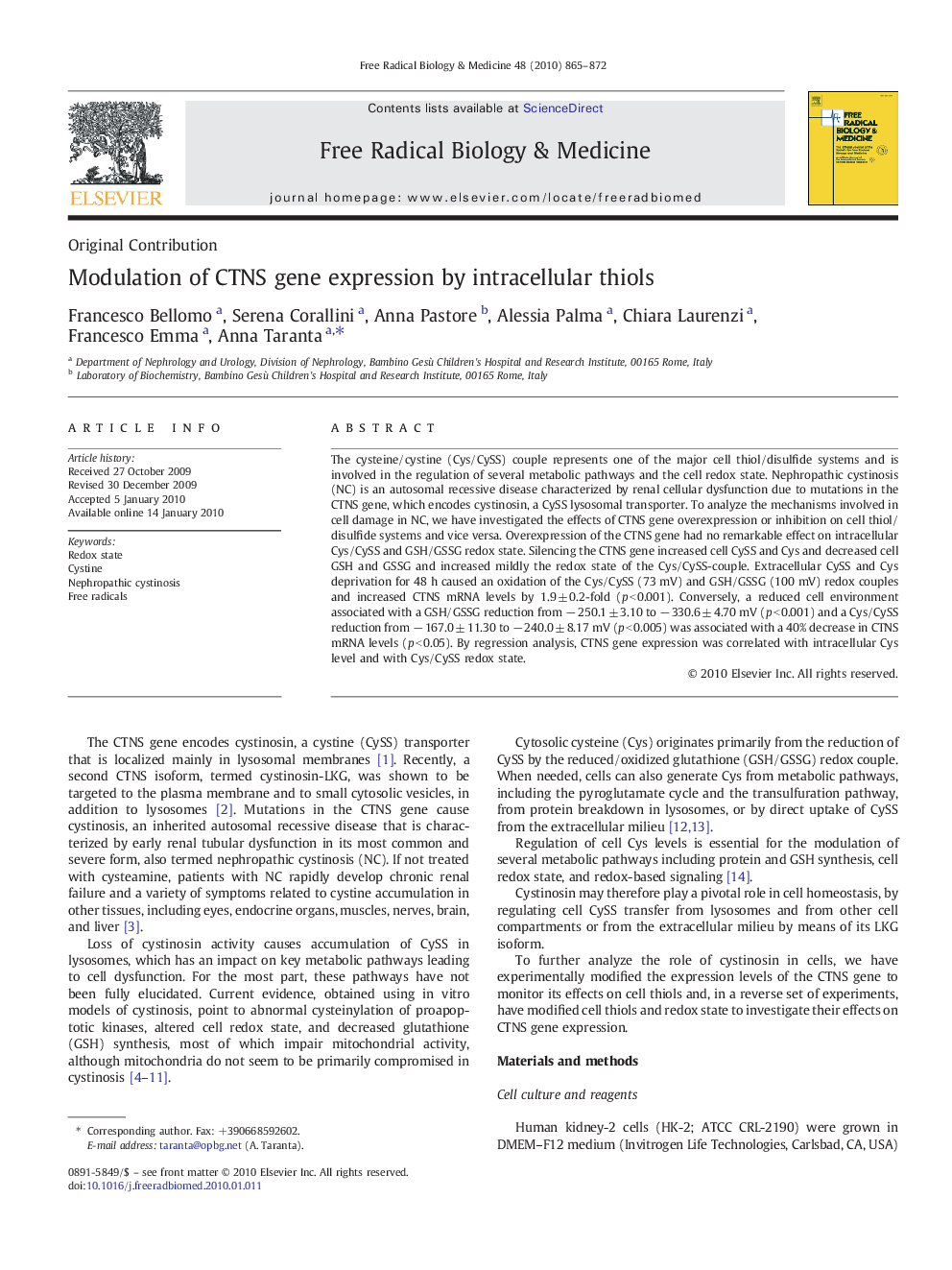| کد مقاله | کد نشریه | سال انتشار | مقاله انگلیسی | نسخه تمام متن |
|---|---|---|---|---|
| 1910194 | 1046758 | 2010 | 8 صفحه PDF | دانلود رایگان |

The cysteine/cystine (Cys/CySS) couple represents one of the major cell thiol/disulfide systems and is involved in the regulation of several metabolic pathways and the cell redox state. Nephropathic cystinosis (NC) is an autosomal recessive disease characterized by renal cellular dysfunction due to mutations in the CTNS gene, which encodes cystinosin, a CySS lysosomal transporter. To analyze the mechanisms involved in cell damage in NC, we have investigated the effects of CTNS gene overexpression or inhibition on cell thiol/disulfide systems and vice versa. Overexpression of the CTNS gene had no remarkable effect on intracellular Cys/CySS and GSH/GSSG redox state. Silencing the CTNS gene increased cell CySS and Cys and decreased cell GSH and GSSG and increased mildly the redox state of the Cys/CySS-couple. Extracellular CySS and Cys deprivation for 48 h caused an oxidation of the Cys/CySS (73 mV) and GSH/GSSG (100 mV) redox couples and increased CTNS mRNA levels by 1.9 ± 0.2-fold (p < 0.001). Conversely, a reduced cell environment associated with a GSH/GSSG reduction from − 250.1 ± 3.10 to − 330.6 ± 4.70 mV (p < 0.001) and a Cys/CySS reduction from − 167.0 ± 11.30 to − 240.0 ± 8.17 mV (p < 0.005) was associated with a 40% decrease in CTNS mRNA levels (p < 0.05). By regression analysis, CTNS gene expression was correlated with intracellular Cys level and with Cys/CySS redox state.
Journal: Free Radical Biology and Medicine - Volume 48, Issue 7, 1 April 2010, Pages 865–872